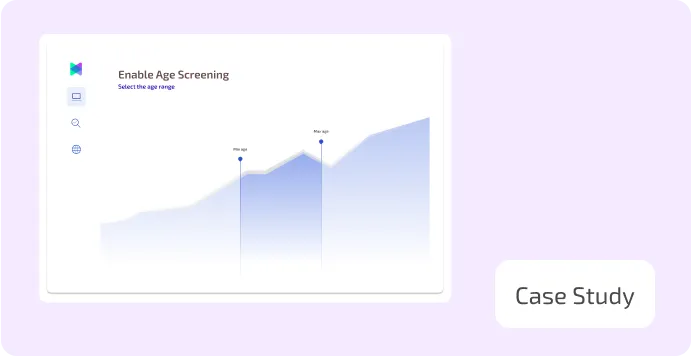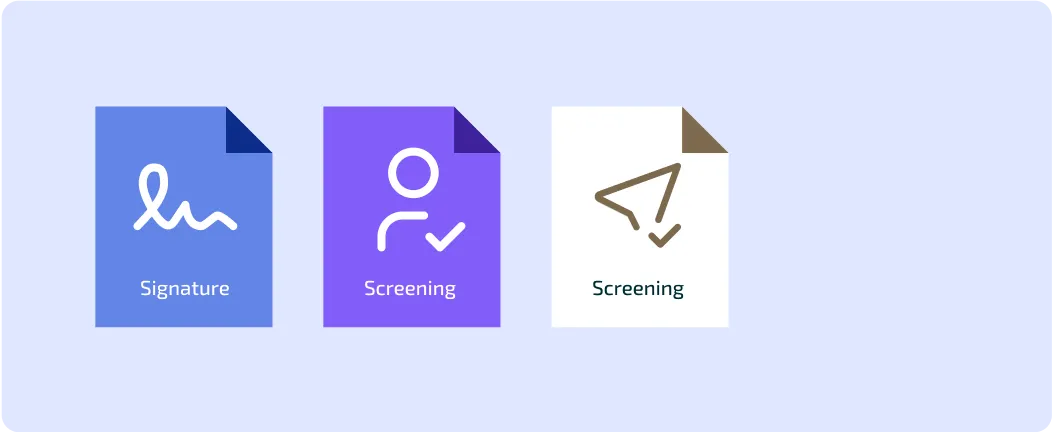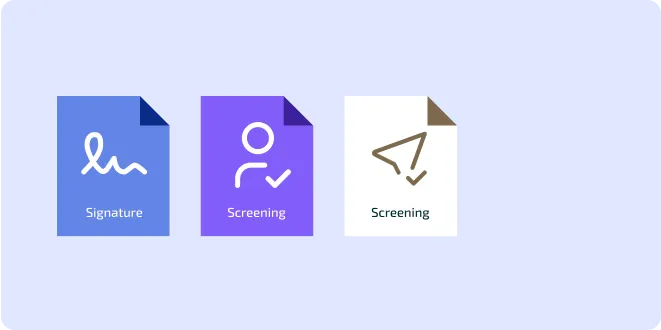.webp)
Published on
March 18, 2025
AML Name Screening: Understanding its Purpose & Techniques
In this story
.png)
Comply quickly with local/global regulations with 80% less setup time
.svg)
.svg)
In the ever-evolving landscape of financial crime, it is crucial for businesses to implement robust anti-money laundering (AML) measures in order to remain compliant and protect their operations from risk. One such essential process is AML Name Screening, which plays a pivotal role in preventing money laundering and terrorist financing activities. This guide aims to demystify AML Name Screening, providing a deep dive into its purpose, techniques, tools, and significance in the financial industry.
What is AML Name Screening?
AML Name Screening, also known as entity or watchlist screening, is a critical component of a robust AML compliance program. It involves the systematic screening of individuals, organizations, and entities against various sanction lists, politically exposed persons (PEPs) lists, and other regulatory watchlists. The objective is to identify and prevent financial transactions involving high-risk or prohibited entities.
The Purpose of AML Name Screening
The primary purpose of AML Name Screening is to detect and mitigate the risk of money laundering, terrorist financing, fraud, and other financial crimes. By cross-referencing customer and transaction data against comprehensive watchlists, financial institutions and businesses can identify potential risks and take necessary actions to ensure compliance with AML regulations.
How Does AML Name Screening Work?
AML Name Screening involves comparing the names of customers, clients, or transaction parties against various lists of sanctioned individuals, entities, or politically exposed persons. This comparison helps identify potential matches or "hits" between the names being screened and the names on the watchlists. Once potential matches are identified, enhanced due diligence can be conducted to determine if there is an actual risk or a false positive.
Essential Techniques for AML Name Screening
To ensure effective AML Name Screening, financial institutions employ various techniques and methodologies. Some of the commonly used techniques include:
- Exact Matching: This technique involves comparing names character by character for an exact match. It helps identify direct matches on the watchlists, allowing prompt action to be taken.
- Fuzzy Matching: Fuzzy matching allows for a degree of flexibility in matching names by considering variations in spelling, abbreviations, phonetics, and other factors. This technique helps minimize false negatives and improves the overall accuracy of name screening.
- Advanced Algorithms: Sophisticated algorithms are employed to enhance the screening process. These algorithms consider contextual factors, such as geographic information, known aliases, and name variations, to improve the accuracy of the screening results.
- Automated Batch Screening: To handle large volumes of customer data, automated batch screening is employed. This technique allows institutions to screen thousands of names simultaneously, saving time and ensuring efficient compliance.
- Real-time Screening: Real-time screening enables immediate checks against updated watchlists during customer onboarding or transaction processing. This technique ensures that any changes in the status of individuals or entities are promptly detected.
Comply quickly with local/global regulations with 80% less setup time
.svg)
.svg)
FAQs about AML Name Screening
FAQ 1: What are the regulatory requirements for AML Name Screening?
Regulatory requirements for AML Name Screening vary by jurisdiction. Financial institutions must comply with local and international regulations, such as the Financial Action Task Force (FATF) recommendations and local AML laws.
FAQ 2: What happens if a name matches a watchlist entry?
When a name matches a watchlist entry, further investigation is conducted to determine the level of risk. If the match is confirmed, appropriate actions, such as enhanced due diligence, reporting to authorities, or blocking transactions, are taken.
FAQ 3: How often should AML Name Screening be performed?
AML Name Screening should be performed at regular intervals, such as during customer onboarding, before executing transactions, and periodically as part of ongoing monitoring. The frequency may vary based on risk factors and regulatory requirements.
FAQ 4: Can AML Name Screening be outsourced?
Yes, financial institutions can choose to outsource their AML Name Screening processes to specialized service providers. However, the ultimate responsibility for compliance lies with the institution itself.
FAQ 5: What are the consequences of non-compliance with AML Name Screening requirements?
Non-compliance with AML Name Screening requirements can result in severe penalties, reputational damage, legal consequences, restrictions on conducting business activities, and in some really serious cases even imprisonment.
FAQ 6: Can AML Name Screening be integrated with existing systems?
Yes, AML Name Screening can be integrated with existing customer relationship management (CRM) systems or transaction monitoring systems to automate the screening process and ensure seamless compliance.
Conclusion
AML Name Screening is a vital tool in the fight against financial crime, including money laundering and terrorist financing. By diligently screening individuals, entities, and transactions against watchlists, financial institutions can safeguard their operations, protect themselves from regulatory scrutiny, and contribute to a more secure financial ecosystem. Implementing effective AML Name Screening techniques and utilizing advanced screening tools are crucial steps for businesses aiming to stay ahead in combating financial crimes.
Comply quickly with local/global regulations with 80% less setup time
.svg)
.svg)

How Aseel reduced onboarding time by more than 87% using FOCAL
Learn how FOCAL empowered Aseel to achieve new milestones.
.svg)
.svg)
Mastering Fraud Prevention: A Comprehensive Guide for KSA and MENA Businesses
51% of organizations fell victim to fraud in the last two years, don't be caught off guard, act proactively.
.svg)
.svg)
Featured blog posts





AI-Driven Precision in Fraud Risk and AML Compliance
.svg)
.svg)

.svg)
.png)




.svg)


.webp)


.webp)
.webp)


.svg)








%20(1).webp)
Comments
Leave a Reply
Comment policy: We love comments and appreciate the time that readers spend to share ideas and give feedback. However, all comments are manually moderated and those deemed to be spam or solely promotional will be deleted.